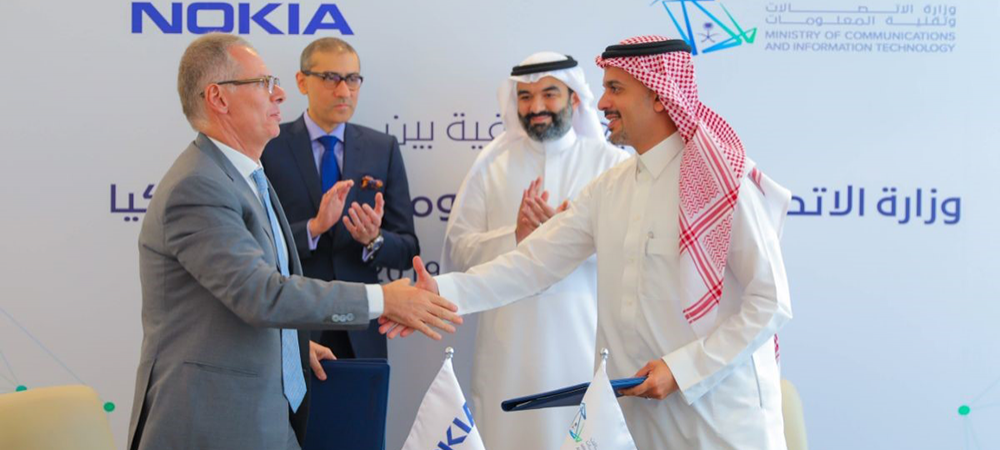The Saudi Ministry of Communications and Information Technology [MCIT] has entered into an agreement with Nokia to launch the Nokia R&D unit for developing software in KSA.
The agreement was signed by H.E Deputy Minister of Communications and Information Technology, Eng. Haitham Bin Abdul-Rahman Al-Ohali, and Amr K. El Leithy, Head of the Middle East and Africa Market, Nokia, in the presence of H.E Minister of Communications and Information Technology, Eng. Abdullah Bin Amer Alswaha and Rajeev Suri, the President and CEO of Nokia.
The co-operation aims to establish a Nokia software development unit and Bell Labs Research Unit in KSA.
In addition, the co-operation envisages establishment of a maintenance centre for base station components. The centre will primarily serve KSA and will possibly cover Gulf Co-operation Council members in the future.
Additionally, local talent development training programmes and collaboration programmes in 5G and IoT will be established. Furthermore, it will also envisage MCIT supporting Nokia in joint programmes together with the Saudi Digital Academy.
Based on the co-operation, Nokia experts will provide ICT consultancy services, and present trends and opportunities especially in areas such as spectrum allocation.
Both parties will work on accelerating the efforts in Digital Transformation of the energy sector, by developing the digital skills of the sector’s staff members to realise Saudi ICT Strategy 2023 that aims to establish a strong digital infrastructure.
Such
digital infrastructure will contribute to the acceleration of the Digital Transformation
process and realisation of 2030 Saudi Vision. The co-operation will also
enhance the role of the ICT sector to build a digital society, digital
government and digital economy in KSA. .
Additionally, the co-operation aims to train young talents in digital
technologies to develop local content. It will also establish two research and
software development units for developing high-quality products by the company
in KSA.
The co-operation also
envisages the creation of an environment that attracts local and international
investments into the technology industry and enable knowledge transfer, in
addition to creating job opportunities in line with Saudi Vision 2030 towards
diversifying the national economy.


